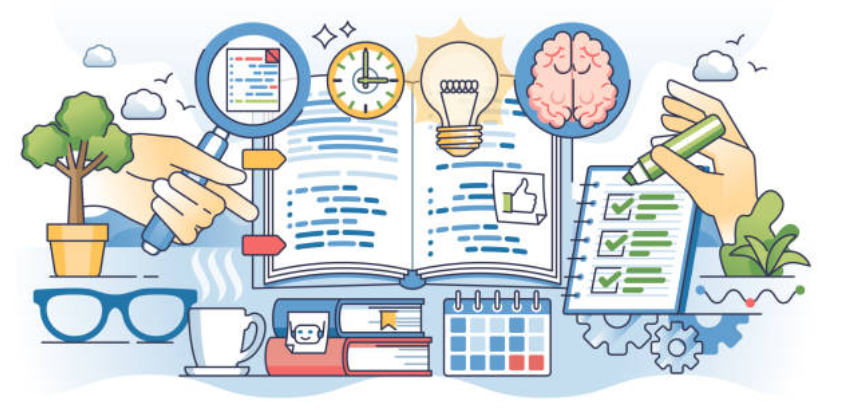Do You Know the Smartest Study Techniques Backed by Science
Learning isn’t about long hours—it’s about smart methods. Discover the best study techniques backed by science, including active recall, spaced repetition, dual coding, and more, to boost memory, focus, and exam success.
KNOWLEDGE & EDUCATION
Do You Know Team
7/27/20254 min read


Studying is something we all do, but not everyone studies effectively. Many students spend long hours with books or notes and still feel unprepared before exams. Why? The problem lies in how we study, not how long we study. Science has shown that some study techniques are far more effective than others in helping us learn, remember, and apply knowledge. From active recall to spaced repetition, there are proven strategies that can make a huge difference. Let’s explore the smartest study techniques backed by research and understand how you can use them to maximize your learning.
1. Active Recall – Testing Yourself Instead of Re-Reading
Research proves that testing your memory helps strengthen it. Instead of passively re-reading notes, actively try to recall what you’ve learned without looking at the book. Flashcards, practice quizzes, or explaining a concept aloud are powerful ways to engage the brain and improve long-term retention.
2. Spaced Repetition – Study Less, Remember More
The brain forgets information quickly if we don’t revisit it. The spaced repetition method uses intervals to strengthen memory. For example, review notes after 1 day, then 3 days, then a week, and so on. Tools like Anki and Quizlet are built on this principle, making learning more efficient than cramming.
3. Interleaving – Mix Different Topics While Studying
Instead of focusing on one subject or type of problem for hours, try interleaving—studying different topics or problem types in a single session. Studies show this technique improves problem-solving skills because it forces the brain to distinguish between concepts rather than memorizing patterns blindly.
4. The Pomodoro Technique – Focus in Short Bursts
Long study sessions can cause fatigue and lower focus. The Pomodoro Technique suggests working for 25 minutes and then taking a 5-minute break. After four cycles, take a longer 20–30 minute break. This boosts productivity and helps the brain stay fresh.
5. Dual Coding – Use Both Words and Visuals
The brain processes visuals faster than text. Dual coding combines notes with diagrams, flowcharts, and infographics. For example, when studying history, write key points alongside a timeline; for science, pair definitions with labeled diagrams. This engages multiple parts of the brain, leading to deeper understanding.
6. Elaborative Interrogation – Ask "Why?" While Studying
Don’t just memorize—ask why and how things work. For instance, instead of remembering “photosynthesis occurs in chloroplasts,” ask why chloroplasts are suitable for this process. This method forces deeper thinking and makes knowledge stick longer.
7. The Feynman Technique – Teach to Learn
Physicist Richard Feynman once said, “If you can’t explain something simply, you don’t understand it well enough.” The Feynman Technique encourages learners to explain concepts in simple language as if teaching a child. This helps identify knowledge gaps and strengthens true understanding.
8. Mind Mapping – Organize Ideas Visually
Mind maps allow you to see the connections between concepts. Start with a central idea and branch out with keywords, diagrams, and associations. This visual method is especially useful for subjects like history, biology, or business studies where multiple ideas are interconnected.
9. Retrieval Practice with Practice Tests
Taking practice tests is not only for exam preparation—it is a learning strategy itself. Research shows that practice tests help strengthen memory pathways and reduce anxiety during actual exams. Even self-made quizzes can dramatically improve recall.
10. Sleep and Study – The Forgotten Technique
Science shows that sleep is essential for memory consolidation. Pulling all-nighters weakens focus and memory. Instead, study during the day, review before sleep, and get at least 7–8 hours of rest. Your brain strengthens learning while you sleep.
11. Chunking Information
The human brain struggles with large amounts of information. Chunking means breaking big lessons into smaller, related groups. For example, remembering a phone number as “987-654-3210” instead of “9876543210” makes recall easier.
12. Contextual Learning – Study in Real-Life Settings
Learning becomes stronger when tied to real-life experiences. For example, practicing vocabulary while speaking, solving math in real situations like shopping, or studying history while visiting museums makes learning more engaging and memorable.
13. Note-Taking Styles – Cornell Method and Beyond
Not all notes are equal. The Cornell Method divides notes into key points, details, and summaries, improving clarity. Digital note-taking tools like Notion, Obsidian, or Evernote also help organize study material effectively.
14. Study with Peers – Collaborative Learning
Group study encourages discussion, questioning, and explanations, which boost understanding. Explaining to friends and debating different viewpoints helps knowledge stick better than studying alone.
15. Healthy Lifestyle and Focus
Smart study techniques don’t work if the brain isn’t healthy. A diet rich in omega-3, regular exercise, meditation, and reduced screen distractions improve focus and memory retention, creating the perfect environment for effective studying.
FAQ
Q1: What is the most effective study technique according to science?
A1: Active recall combined with spaced repetition is widely considered the most effective for long-term learning.
Q2: How many hours should I study daily for best results?
A2: Quality matters more than quantity. Two to four hours of focused study with proper breaks is often more effective than long, distracted sessions.
Q3: Does highlighting text help in studying?
A3: Highlighting alone is not very effective. It should be combined with active recall, notes, and practice questions to work well.
Q4: Are digital flashcards effective?
A4: Yes, apps like Anki and Quizlet use spaced repetition algorithms, making them highly effective for memorization.
Q5: Can music help while studying?
A5: Soft instrumental or classical music can help focus, but lyrics-heavy music may distract. Silence often works best for deep concentration.
Conclusion:
Studying smart is better than studying hard. Science-backed techniques like active recall, spaced repetition, dual coding, and the Pomodoro method make learning more effective and efficient. By combining these strategies with good sleep, healthy habits, and regular practice, anyone can maximize their learning potential. In the modern world, where information is endless, knowing how to learn effectively is the ultimate skill.
#StudyTips #Learning #Education #ScienceBacked #StudentSuccess #StudyTechniques #MemoryBoost #Focus
Knowledge
Empowering minds with reliable educational content daily.
Newsletter Signup
© 2025 DoYouKnow. All rights reserved.
Stay Ahead of the Trends – Join Our Newsletter
